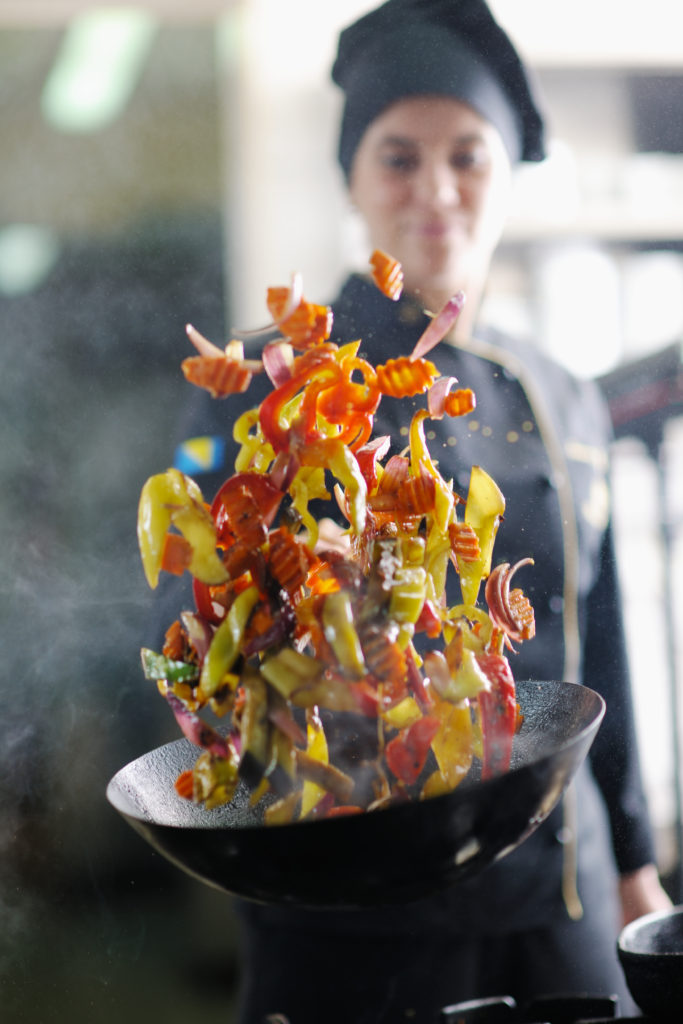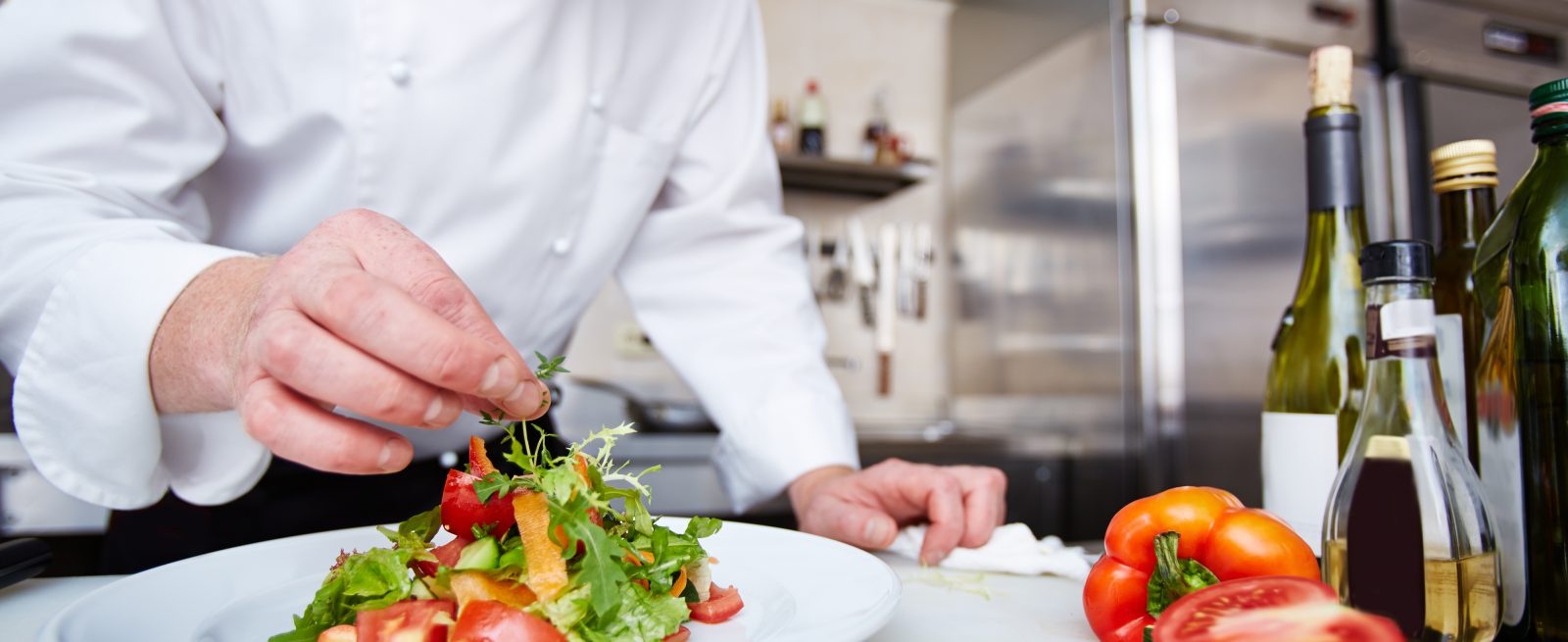Chefs’ Perspective: Thoughts on a Changing Industry
4 Min Read By Imagine Impact and Cooks Who Care
Ask anyone who works in a kitchen and they will likely tell you the same thing: the industry is changing. To meet the demands of the American consumer, who is spending more money on restaurant food than ever before, the restaurant scene in major cities is booming, with new restaurants opening at a rapid pace. However, there is a shortage of chefs to fill all the open positions that are being created, and the young members of the workforce bring with them expectations for a workplace that is very different from the one of their predecessors. Today’s chefs have to work hard to keep up with an ever-evolving set of challenges, and are having to train themselves to adapt to meet these challenges.
There is scarcity of data about the challenges that chefs and restaurant managers face in regards to staffing issues, so the task at hand is to seek ways to gather this information. In the interest of furthering this goal, Chef Maria Campbell sat down to talk with two Philadelphia area chefs, Chef Keith Taylor, a chef/owner at several Philadelphia businesses who currently teaches at Drexel University, and Chef John Patterson, Executive Chef of Fork restaurant. She also spoke with Chef Eva Barrios, Executive Sous Chef of the Austin Country Club in Austin, Texas. Campbell is the founder of Imagine Impact, LLC, a Philadelphia area Chef Consulting firm. These interviews offer honest insight into today’s kitchens and provide a snapshot of what has been learned so far.
A Changing Culture
Both Taylor and Patterson readily acknowledge that the culture around their profession is changing rapidly. One of the first changes they each speak to is in the tone and atmosphere of the kitchen. The days of the yelling head chef alienating their staff are coming to an end, despite what you may see on television competition shows. “Yelling is destructive,” said Chef Patterson, who acknowledges that while yelling can give an immediate result, it ultimately leads to long term disengagement and a frustrated staff that isn’t likely to stick around when they find a better position.
Chef Taylor mirrors this thought. The commonly accepted kitchen culture is infused with the attitude that when you are hired, you should immediately know what to do and you must not fail. “It’s demoralizing,” he said. Everyone knows that a workplace where people feel demoralized is not a place that people want to stay for the long term. It’s time to “humanize your kitchen,” said Taylor.
The key to this humanizing process is establishing an environment of trust in the workplace. Chefs must, Taylor states, be fair and lead by example. He recognizes that kitchen staff soak in more by watching their head chef than they do by listening. He strives to make sure that his staff know that he is “real” by getting to know them, listening to them, encouraging them to be part of his planning processes, rewarding the behavior he wants, and most importantly, by knowing how to apologize when necessary.

For Chef Barrios, getting to know her staff and understanding their backgrounds is an essential step in this humanizing process. She leads a diverse team, and makes a point to learn about an incoming staff member’s cultural and food heritage as part of the on-boarding process. This sharing of knowledge builds respect and a stronger connection between the people in Barrios’s kitchen. “Ability and technique,” she said, “are only part of the puzzle.”
One reason that experts cite for this changing culture is the influx of millennials into the culinary field. This generation expects to find a value in what they do that extends beyond the monetary value of their paycheck. They also expect to be valued by their workplace. The harshly competitive atmosphere in professional kitchens, with punishingly long shifts and few benefits that is the norm in the restaurant industry will no longer work for the next generation of young cooks.
Millennials “don’t want a boss – they want a coach,” said Chef Adam M. Lamb, industry expert for Foodable and host of the Chef Life Radio podcast series. Since there are fewer chefs than open jobs, this new generation of employee can afford to keep moving until they find the type of atmosphere they are seeking. Head chefs who fail to create this type of kitchen environment are going to continue to find themselves short staffed and losing out. It is time to adapt.
Hiring Strategies
Today’s chef managers struggle to find the right strategies for recruiting and retaining the best people for their kitchens. In the Chef Life Radio podcast episode titled “Are Millennials Changing Culinary Culture for the Better?”, Chef Lamb suggests that there needs to be a shift from management to mentorship.
Chef Patterson prefers to start mentoring from the very beginning. He favors hiring inexperienced line cooks and training them to be part of the culture he wants to create. Chef Taylor favors hiring someone at an entry level position with a clear timeframe of how they will advance while learning on the job. In this scenario, a dishwasher should be actively working towards being a prep cook within three to four months, under the guidance of their kitchen leadership. “Smart leaders are looking to build more leaders,” Taylor states. It is up to the head chef to identify staff with potential and consistently carve time out of busy schedules to focus on building and training these individuals.
The need for this type of one-on-one development was also reported in a set of anonymous management surveys that Campbell and the Imagine Impact team conducted with chef managers and their sous chefs during August 2016. Two thirds of the sous chefs surveyed agreed that one-on-one development time with their chef manager would be key to improving their personal development as chefs. Almost two thirds of the chefs surveyed agreed that this one on one time would create a better developed staff.
Julie Kauffman Strong is a writer, editor, and baker from Philadelphia. Stephen Wilson is a pastry chef, business owner, and writer from Audubon, NJ. Maria Campbell, CEC is a chef and culinary educator from Media, PA. Together, they make up part of the teams at Imagine Impact and Cooks Who Care, two organizations founded by Campbell. Imagine Impact is a chef consulting firm, featuring a team of chef experts offering solutions and business strategies for restaurant leadership. Cooks Who Care is an organization for individuals in the culinary industry that facilitates both their personal and professional development. They organize activities for chefs to socialize, network, and develop management skills. Cooks Who Care also works to support local non-profits who provide art education opportunities for underserved and at-risk Philadelphia youth by linking member chefs who want to donate their time, energy, and love of food to organizations that are champions of the arts. For additional information on Imagine Impact, click here or visit their Facebook page. To learn more about Cooks Who Care, visit the website or the Facebook page.

